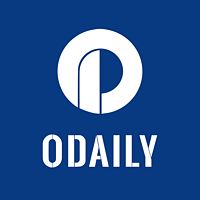Latest DePIN News

2 months ago
Significant Growth in Total Value Locked Across DeFi Projects
The total value locked (TVL) in various cryptocurrency projects has seen remarkable growth, as highlighted in a recent research document by Phoenix Group, which utilizes data from DeFiLlama. TrueFi (TRU) has emerged as the leading project, boasting a TVL increase of $260.2k, equating to an impressive 424% surge. This growth positions TrueFi ahead of its competitors in terms of locked value, showcasing the increasing investor confidence in decentralized finance (DeFi) markets.
Following TrueFi, three DeFi projects—Mint ($MINT), Maple ($MPL), and Zircuit ($ZRC)—have also experienced notable TVL growth. Mint currently holds a TVL of $1.5 million, while Maple and Zircuit report $454.4 million and $890.8 million respectively. This upward trend in TVL indicates a growing trust among investors and heightened activity within the DeFi sector, reflecting a broader acceptance of decentralized financial applications.
Additionally, other protocols such as Note ($NOTE), Euler ($EUL), and Velodrome ($VELO) have shown substantial TVL increases, with values rising to $13.5 million, $377.1 million, and $66.7 million respectively. The overall growth in TVL across multiple platforms signifies a diverse and expanding DeFi landscape, driven by enhanced liquidity and user engagement. As protocols like $IDLE, $PUFFER, $BLUE, and $CPOOL report successive growth, the ongoing trends are reshaping the DeFi ecosystem, attracting more capital inflows and reinforcing the foundation of decentralized finance networks.

2 months ago
The Rise of Decentralized Physical Infrastructure Networks in Cloud Computing
As technology continues to evolve, the Decentralized Physical Infrastructure Network (DePIN) is emerging as a transformative force in the realm of cloud computing. Built on blockchain technology, DePIN utilizes individual hardware devices, known as nodes, which can range from personal computers to IoT devices. This decentralized network eliminates the need for a centralized authority, enhancing security and transparency while outperforming traditional systems in efficiency and scalability. With the rise of AI applications, decentralized networks are becoming essential for managing data collection and processing, as highlighted by a recent CoinDesk report indicating that the market capitalization of DePIN tokens has exceeded $25 billion, driven by advancements in computing and AI sectors.
Several projects exemplify the potential of DePIN technology. Akash, often referred to as the "Airbnb of cloud computing," connects sellers of excess computing resources with buyers, creating an open-source platform for cloud services. Meanwhile, io.net focuses on providing a decentralized GPU network for machine learning applications, boasting 83,000 GPUs and significant cost savings compared to traditional providers. Grass, another DePIN initiative, allows users to share their internet bandwidth in exchange for rewards, while Koii aims to democratize access to decentralized computing by enabling any device to participate in the network, thus broadening the scope of user involvement and reward opportunities.
Despite the promising advancements, the DePIN market faces challenges in establishing a sustainable revenue model. Many projects rely on a dual-token system to balance supply and demand, akin to the Goldilocks problem of finding the right equilibrium. To foster growth, initiatives like Koii's EZSandbox are simplifying the onboarding process for developers, providing tools and resources to create and test decentralized applications. Collaborations, such as Koii's partnership with the Web3 search engine Adot, further enhance network efficiency and accessibility. As the reliance on cloud computing grows, DePIN platforms like Koii, Akash, and Grass are poised to reshape the landscape of decentralized computing, making it more accessible and cost-effective for users worldwide.

2 months ago
India Hosts First-Ever Solana DePIN Summit in Bangalore
Bangalore, India’s tech hub, recently hosted the first-ever Solana DePIN Summit on March 25, 2025, marking a pivotal moment for the country’s digital landscape. This event gathered both Indian and international startups focused on Decentralized Physical Infrastructure Networks (DePIN), providing a unique platform for innovators to present their ideas to a global audience of investors. The summit highlights the growing trend of blockchain startups in India, particularly in the DePIN sector, which integrates IoT, energy networks, and wireless communications with blockchain technology to create more efficient and decentralized infrastructure solutions.
One of the key players at the summit was Wifi Dabba, a Y Combinator-backed startup based in Bangalore, which served as the title sponsor. Wifi Dabba utilizes Solana's blockchain to enhance broadband access in Tier 2 and Tier 3 cities through a DePIN model, collaborating with local operators under India's PM-WANI initiative. Co-founder Shubhendu Sharma emphasized that Solana's choice of India for its inaugural DePIN Summit underscores the country's growing presence in the Web3 space, as Indian startups leverage blockchain technology to tackle real-world challenges, particularly in bridging the digital divide.
Despite having only 41 million fixed broadband connections compared to China's 600 million, India is poised to make significant strides in its digital infrastructure. The DePIN model proposed by Wifi Dabba aims to lower the barriers to entry for broadband access, aligning with the Telecom Regulatory Authority of India's goal of achieving 100 million broadband users by 2030. Events like the Solana DePIN Summit are crucial for amplifying India's role in the global DePIN landscape, showcasing local talent and fostering international collaboration, ultimately positioning India as a key player in Web3 innovations and decentralized infrastructure development.

2 months ago
Grayscale Updates Top 20 Crypto Projects for Q2 2025
Grayscale, the world’s largest crypto asset management company, has unveiled its updated list of the Top 20 potential crypto projects for Q2 2025. This latest list introduces three promising newcomers: Maple (SYRUP), Geodnet (GEOD), and Story Protocol (IP), while removing Akash, Arweave, and Jupiter. As the crypto market continues to experience volatility, Grayscale is strategically positioning itself to capitalize on emerging trends that could redefine the industry landscape.
According to Grayscale's Market Insights report, the first quarter of 2025 witnessed a decline in the cryptocurrency market, mirroring the downturn seen in tech stocks and other high-risk assets. Although Bitcoin's network activity remained stable, interest in meme coins, particularly within the Solana ecosystem, has diminished. Nevertheless, Web3 applications across DeFi, AI, and infrastructure sectors have collectively generated over $2 billion in revenue. Notably, Sui (SUI) has emerged as a leading smart contract platform, boasting rapid transactions and low fees without the need for additional scaling layers, currently holding just 3% of Grayscale’s Smart Contract Platforms index.
For Q2 2025, Grayscale is concentrating on three pivotal areas: Decentralized Physical Infrastructure (DePIN), Real World Assets (RWA), and Intellectual Property Tokenization (IP). The addition of Maple, Geodnet, and Story Protocol to the Top 20 list reflects this focus. Maple is a lending platform for institutional clients with a total value locked (TVL) exceeding $600 million, while Geodnet provides real-time positioning data across 130+ countries, generating over $3 million in monthly revenue. Story Protocol aims to tokenize the $70 trillion intellectual property market, attracting high-profile artists like Justin Bieber and BTS. However, Grayscale cautions that these assets are highly volatile and risky, particularly highlighting GEOD's lack of major exchange listings as a significant concern.

2 months ago
Phoenix Is Leading the Growth and Innovation of the DePIN-AI Sector
The Decentralized Physical Infrastructure Network (DePIN) sector is rapidly evolving, showcasing significant potential across various technological domains. According to a recent report by Messari, DePIN is currently in its nascent growth phase, holding less than 0.1% of the market share but boasting a market cap of $50 billion, supported by over 13 million devices contributing daily. By eliminating centralized intermediaries, DePIN facilitates a more efficient and inclusive sharing of physical assets, which is crucial for the development and operation of critical infrastructures in computing, AI, wireless technology, and energy services.
Since its inception, DePIN has garnered attention from major tech companies, particularly in 2023, as global manufacturers began integrating blockchain into real-world infrastructures. The sector can be categorized into Physical Resource Networks, which focus on devices, and Digital Resource Networks, which emphasize computing resources like CDNs and AI. This duality allows individual device owners to share data and earn rewards while providing accessible computing resources. DePIN's applications extend to telecommunications, data management, and cloud storage, offering scalable alternatives to traditional centralized systems and enhancing AI functionalities.
At the forefront of this innovation is Phoenix, a decentralized AI compute network that leverages DePIN infrastructure to deliver scalable solutions for AI applications. Phoenix's SkyNet platform utilizes a globally distributed network of high-performance GPUs, including both NVIDIA and alternative models, to optimize AI operations. Their collaborations with firms like TandemAI and Origin Quantum aim to democratize access to advanced computing resources, enabling research organizations to conduct complex analyses at minimal costs. As the DePIN-AI sector is projected to reach a market size of $3.5 trillion by 2028, Phoenix is poised to lead this transformative wave by merging decentralized infrastructure with cutting-edge AI technologies.

2 months ago
Get Goated Season 2: Upcoming Token Rewards and Claim Process
The Get Goated Season 2 reward distribution is entering its next phase, following the successful $IOTX claim phase where millions of tokens were distributed to community participants. The claim window for $IOTX officially closed on March 27, with any unclaimed tokens reverting to the IoTeX Treasury Pool. The community will decide on the future use of these tokens through an IoTeX Improvement Proposal (IIP). As the program progresses, participants are reminded to claim their rewards before the deadline to avoid missing out on their allocations.
Starting April 7, 2025, participants can claim token rewards from the first batch of ecosystem sponsors, which includes Geodnet, Uprock, Drop Wireless, and Network3. Prior to claiming, there will be a review window from March 28 to March 31, where participants can verify their reward allocations. After this period, allocations will be locked into the distribution smart contract, and no changes can be made. This structured approach ensures that both social contributors and active participants are rewarded fairly, promoting engagement within the ecosystem.
A crucial element of this distribution is the zkPass verification, which played a significant role in the success of the first phase by ensuring that rewards were given to genuine users, preventing abuse from bots and fake accounts. This verification process will be integral to all future IoTeX campaigns, emphasizing the commitment to prioritize real users. The Get Goated Season 2 aims to celebrate and reward the IoTeX community, providing real ownership in the decentralized infrastructure of the future while encouraging ongoing participation and engagement.

2 months ago
Top Five Cryptocurrency Gainers of the Week
In the past week, the cryptocurrency market has witnessed remarkable price surges among several tokens, with the top five gainers being VIRTUAL, MOODENG, OLAS, GOAT, and NOS. VIRTUAL led the pack with an impressive increase of 181%, rising from $0.15 to nearly $0.50. This surge is attributed to the involvement of Arete Capital, which is advising Virtuals Protocol on integrating AI agents into the economy. Additionally, the introduction of Luna, the first autonomous agent to employ humans on-chain, has further fueled interest in the token.
Following closely is MOODENG, which recorded a 165% price increase after the launch of the MOODENGUSDT Perpetual Contract on Binance Futures. The token's price surged from a stable range of $0.07 to $0.08, ultimately peaking at over $0.26. With a market cap exceeding $225 million, MOODENG has gained traction as a memecoin inspired by a viral baby hippo meme. Autonolas (OLAS) also saw significant gains of 92%, driven by the approval of its protocol deployment on ModeNetwork, which aims to scale DeFi through AI agents.
Other notable gainers include GOAT and NOS, which surged by 70% and 69%, respectively. GOAT's price rally was supported by the launch of futures trading on Binance, while NOS benefited from the launch of Fortress Deepyne, a project led by Nosana AI that aims to democratize access to GPU hardware for AI inference. Overall, these developments reflect a vibrant and rapidly evolving landscape in the cryptocurrency market, with innovative projects driving significant investor interest.

2 months ago
Web3Bay's Successful Presale and Innovations in Crypto Market
In the ever-changing landscape of the cryptocurrency market, Cardano and Filecoin are demonstrating remarkable resilience and innovation. Cardano has experienced a significant price increase this year, reflecting strong market momentum, even as it recently dipped to $1.064. Analysts remain optimistic, predicting that the price could soar to $6 due to ongoing developments and heightened adoption. Meanwhile, Filecoin is making strides in the decentralized storage sector with its latest upgrades, including the "Waffle" upgrade, which enhances performance and compatibility with Ethereum. These advancements not only bolster Filecoin's interoperability but also broaden its appeal within the Web3 ecosystem, attracting developers and businesses alike.
Amidst these developments, Web3Bay (3BAY) has made headlines by successfully raising $830,000 in its latest presale, solidifying its position as a top investment choice during the current bull run. The platform aims to revolutionize the $5 trillion e-commerce industry by leveraging blockchain technology to improve transaction efficiency and user privacy. Central to Web3Bay's strategy is the 3BAY token, which offers a 5% discount on purchases and governance rights. The presale has already sold 220 million coins at a starting price of $0.004562625, with expectations of substantial price increases as new features like NFT integration and cross-chain capabilities are introduced.
As Web3Bay continues to evolve, it is set to launch innovative features that will further transform the e-commerce landscape. The project's commitment to transparency and user empowerment through blockchain technology is attracting a diverse range of supporters, reinforcing its status as a leader in the digital commerce revolution. With Cardano's inclusion in Robinhood enhancing its accessibility and Filecoin's strategic upgrades solidifying its market position, the future looks promising for these projects. Web3Bay, in particular, stands out as a compelling opportunity for investors seeking to engage with a robust, growth-oriented crypto initiative in the decentralized commerce space.

2 months ago
Karrier One: Revolutionizing Telecom and Financial Inclusion Through Decentralization
In the past 150 years, telecommunications has played a crucial role in connecting humanity. However, its function has become increasingly limited to mere communication, while financial systems have developed independently. Karrier One aims to change this narrative by introducing decentralized telecom innovations that integrate connectivity with financial services. Their vision transforms every connected device into more than just a communication tool; it becomes a bank, a digital identity hub, and a gateway to new opportunities. This initiative is not merely about enhancing telecom or financial services but about creating a cohesive system that empowers individuals and communities through connectivity and financial inclusion.
A significant challenge remains in the fact that 1.7 billion adults globally are unbanked, despite billions using mobile devices daily. Karrier One sees telecom as the missing link to bridge this gap. By utilizing its decentralized platform, every device connected to its network can act as a financial node, facilitating secure transactions and providing access to essential financial tools like microfinance. This innovation is particularly transformative in regions with limited banking infrastructure, allowing individuals to bypass systemic barriers and access opportunities that were previously unattainable, effectively turning a simple phone into a bank.
Central to Karrier One's approach is the Decentralized Physical Infrastructure Networks (DePIN) model, which empowers communities to create and manage their own telecom networks. This model not only reduces costs but also expands access to underserved areas, fostering resilience and local ownership. The Middle East and North Africa (MENA) region stands to gain significantly from this decentralized telecom innovation, as it addresses connectivity gaps and financial exclusion. By integrating financial services into connectivity solutions, Karrier One is not just offering technology; it is providing a lifeline for full participation in the modern economy. As telecom and finance converge, Karrier One invites investors and telecom operators to join this revolutionary movement, emphasizing the importance of integration and empowerment in shaping the future of connectivity and finance.

2 months ago
SFT Protocol Partners with SOLPEN to Advance AI-Driven Decentralized Infrastructure
SFT Protocol, a prominent player in the Web3 landscape, has announced a strategic partnership with SOLPEN, an AI-driven DePIN ecosystem based on the Solana blockchain. This collaboration aims to redefine the interaction between decentralized AI networks and the Internet of Things (IoT), thereby strengthening the connection between Web3 technology and physical infrastructure. The initiative was revealed through SFT Protocol's official social media channels, highlighting the significance of this merger in advancing the capabilities of both platforms.
The partnership is set to merge SFT Protocol's robust solutions for DePIN infrastructure with SOLPEN's cutting-edge AI-driven wearable technology. This integration is expected to create a decentralized ecosystem that operates with low latency and high efficiency. By leveraging decentralized data processing and AI analytics, the collaboration promises to enhance real-world applications significantly. SFT Protocol has established itself as a key player in the DePIN ecosystem, focusing on blockchain-based infrastructure that supports seamless real-world applications, thus driving the broader adoption of Web3 technologies.
Furthermore, the collaboration benefits from Solana's high-performance blockchain, which facilitates unparalleled integration across various Web3 platforms. By setting new standards for decentralized infrastructure, both SFT Protocol and SOLPEN are enhancing the practicality and accessibility of their offerings. As they continue to evolve, this partnership is poised to lead towards a smarter, AI-integrated Web3 network, paving the way for innovative solutions in the decentralized landscape.
Signup for latest DePIN news and updates